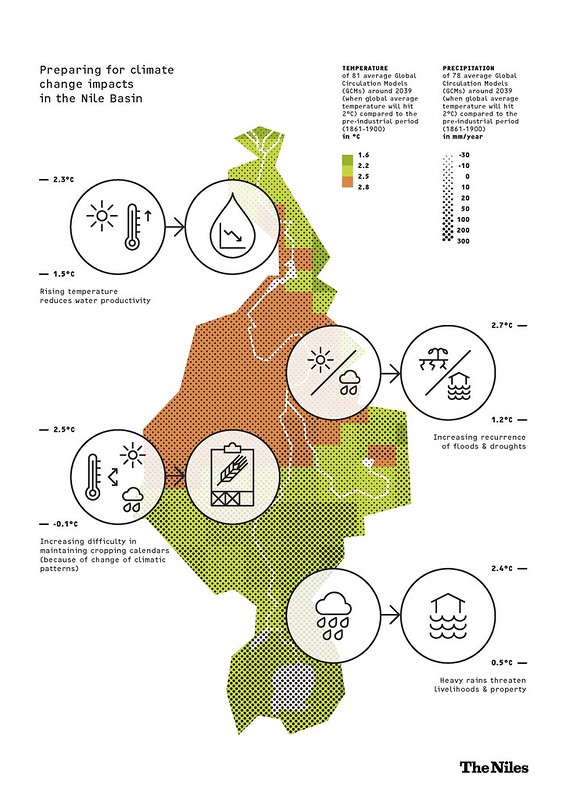EditorialThe board is bigger than we think

A board game commonly played in Kenya’s coastal region, depicted on the cover of this The Niles issue, is Arabuko Sokoke. Its name derives from words used by the Waata people that lived in the forest: arbi (elephant), huk’o (thin) and sokoke (short trees), meaning the “forest of the thin elephant”.
Arabuko Sokoke is what remains of the largest coastal indigenous dry forest block on the continent, which once stretched from southern Somalia to northern Mozambique. The forest, which covers 420 square kilometres, is near Malindi, 110 kilometres north of Mombasa. Today it is home to many endangered species, and the forest is among the globe’s 25 biodiversity hotspots.
Already proclaimed a Crown Forest in 1932 and turned into a strict nature reserve in the late 1960s, the Arabuko-Sokoke forest highlights how foresight and decisive precautions can help avert looming problems – an approach we have sadly failed to adopt when it comes to climate change.
It’s 2022, and the era of climate denial is over. ‘Finally’, the pioneering climate modellers Syukuro Manabe and Klaus Hasselman might think, whose work dates back to the 1970s and only in 2021 shared the Nobel Prize for Physics with theoretical physicist Giorgio Parisi. The award is a recognition “for the physical modelling of Earth’s climate, quantifying variability and reliably predicting global warming”.
The evidence is irrefutable.”
Climate change is widespread, rapid and intensifying, according to the Intergovernmental Panel on Climate Change (IPCC) report, released in August 2021.
The United Nations Secretary-General António Guterres said the report was nothing less than “a code red for humanity. The alarm bells are deafening, and the evidence is irrefutable”.
And indeed, the situation is more than pressing. For many millions of people on the African continent, the climate crisis poses an acute existential threat. The World Meteorological Organisation (WMO), together with the African Union and other partners, presented a report on this in Geneva. Titled “The State of the Climate in Africa 2020”, it shows that climate change is exacerbating the hunger crisis in Africa with rising temperatures, more extreme weather and changes in rainfall, and is driving people from their homes.
Global warming and its consequences are being felt more acutely in Africa than the global average, the report says. The continent is disproportionately affected by floods, droughts and landslides. The year 2020, the report’s focus, was among the ten warmest years since records began.
The Nile Basin is highly vulnerable to climate change. The basin communities have limited possibilities to cope with climate variability which can afflict socioeconomic conditions, the environment and the bid to create a mutually agreed mechanism to manage the shared Nile water resources.
The world has now grasped that climate change is real. That’s good news, but there are many challenges ahead, most importantly overcoming our sometimes limited views about how to address the climate crisis.
On a personal level, helping the environment as individuals can entail buying the right products or adhering to the mantra: “Reduce, Reuse, Recycle”. On the societal level, sustainability, so far viewed as an altruistic gesture, must be declared the default way of operating.
To pull off this transformation, we must overcome resistance from vested interests. Existing environmental regulations need to be better implemented and enforced; harmful policies must be reformed; cultures and structures entangled in colonial history and economic models that perpetuate discrimination, inequality, and environmental destruction must be abolished.
After all, low-income communities everywhere suffer the consequences of bad policies and climate change the most, while having contributed little to the crisis themselves. Therefore, it is critical to give more space to marginalised voices beyond individual sustainability – because the resulting policies primarily affect the homes of the very people who have the least say in our society.
Let’s face it, we humans are massively interfering with the earth’s ecosystems. The destruction of the environment has triggered a global climate crisis and has caused species extinction at an unprecedented rate. But it is not too late to save the ecological diversity of our planet, including our very own species.
It is not too late.”
The science is clear on what we need to do: cut greenhouse gases to zero and protect the wetlands, soils, forests rivers and oceans that absorb our impacts.
Back to the board game analogy, we need to understand the overarching goal and use all the pieces to achieve it. This means trying out multiple strategies, and, above all, grasping that the board is bigger than we think.
Reversing the progressive decline of nature while combating social inequality requires a fundamental rethink of the policies that govern us and the way we invest, use resources, live and work, eat, use land and communicate.
And no one can be left to lose. We have to play this game collaboratively to win!







